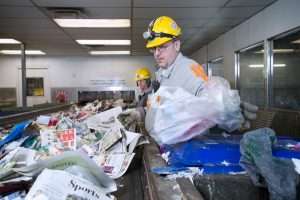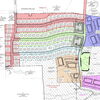
Processing Your Payment
Please do not leave this page until complete. This can take a few moments.
- News
-
Editions
-
- Lists
-
Viewpoints
-
Our Events
-
Event Info
- Women's Leadership Forum 2025
- On the Road with Mainebiz in Bethel
- Health Care Forum 2025
- On The Road with Mainebiz in Greenville
- On The Road with Mainebiz in Waterville
- Small Business Forum 2025
- Outstanding Women in Business Reception 2025
- On The Road with Mainebiz in Bath
- 60 Ideas in 60 Minutes Portland 2025
- 40 Under 40 Awards Reception 2025
- On The Road with Mainebiz in Lewiston / Auburn
- 60 Ideas in 60 Minutes Bangor 2025
Award Honorees
- 2025 Business Leaders of the Year
- 2024 Women to Watch Honorees
- 2024 Business Leaders of the Year
- 2023 NextUp: 40 Under 40 Honorees
- 2023 Women to Watch Honorees
- 2023 Business Leaders of the Year
- 2022 NextUp: 40 Under 40 Honorees
- 2022 Women to Watch Honorees
- 2022 Business Leaders of the Year
-
-
Calendar
-
Biz Marketplace
- News
- Editions
- Lists
- Viewpoints
-
Our Events
Event Info
- View all Events
- Women's Leadership Forum 2025
- On the Road with Mainebiz in Bethel
- Health Care Forum 2025
- On The Road with Mainebiz in Greenville
- On The Road with Mainebiz in Waterville
- + More
Award Honorees
- 2025 Business Leaders of the Year
- 2024 Women to Watch Honorees
- 2024 Business Leaders of the Year
- 2023 NextUp: 40 Under 40 Honorees
- 2023 Women to Watch Honorees
- 2023 Business Leaders of the Year
- + More
- 2022 NextUp: 40 Under 40 Honorees
- 2022 Women to Watch Honorees
- 2022 Business Leaders of the Year
- Nomination Forms
- Calendar
- Biz Marketplace
Ecomaine, municipalities double down on ‘proper recycling’ efforts

With the markets for some recyclable materials in flux, and the focus on reducing the amount of contamination, or trash, in recycling streams, four southern Maine communities are embarking on a new way of getting out the word about proper recycling.
The cities and towns of Falmouth, Scarborough, South Portland and Windham, as part of a group of municipal sustainability managers, have hired summer interns to tour recycling and trash collection routes, review residents’ bins, and provide educational feedback on the importance of recycling — and recycling properly. Interns will work in a portion of each municipality during the summer; residents living in these areas will receive mailed notification about the program.
During interns’ inspections, they will tag carts with green tags for a job well done, yellow tags for carts that have one or two items that are not recyclable, and red tags for bins with too many items that cannot be recycled.

The red-tagged bins are considered contaminated and increase costs for the municipality. The tags will identify item(s) that do not belong in the recycling cart; Pine Tree Waste will not collect the carts with red tags on them, and the unacceptable items must be removed from the cart before collection the next week.
“By partnering on this pilot project, our hope is to decrease the amount of contamination in our recycling streams, first and foremost,” Matt Grondin, ecomaine’s communications manager, said in a news release. “We know that recycling is broadly supported by almost 90% of Americans, who want to do the right thing, but sometimes just aren’t quite sure where to put their waste. By combining education and a small amount of enforcement, we hope to fulfill our mission to increase public awareness about sustainable solid waste management.”
‘Contaminated’ recycling increases costs
Julie Rosenbach, South Portland’s sustainability director, said the summer intern initiative will help educate residents about how to properly sort their trash and recyclable items.
“It’s really important to spread the word about the effect that trash in the recycling can have on our environment, but also our communities’ finances,” she said. “And we also hope that it will start conversations in neighborhoods about recycling, trash, and sustainability.”
In order to process recycling, ecomaine enforces a fee structure that can charge as much as $73 per ton for loads that contain 26% contamination or more. Loads that are not contaminated incur no extra fee.
“Ecomaine is really good at separating out the paper from the cardboard, metal, glass, and plastic,” said Katrina Bussiere-Venhuizen, one of ecomaine’s environmental educators. “What we just aren’t set up to do is to sort out the pillows, food waste, Styrofoam, plastic bags, and other things that aren’t recyclable — those need to be disposed of in different ways, and hopefully, this pilot project will help get us there.”
In addition to tagging bins, interns will also have information about municipal contacts, additional resources on recycling and trash, and how to dispose of particular items. More information is available online here.










0 Comments